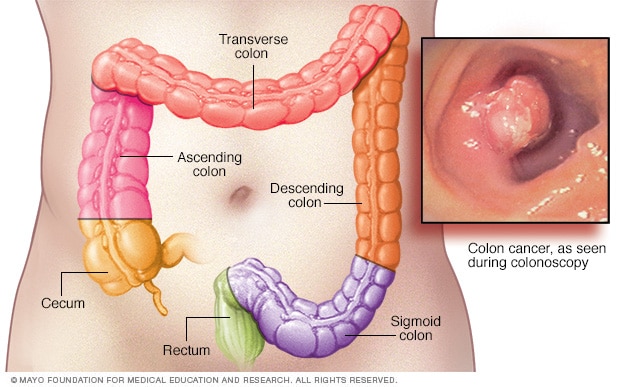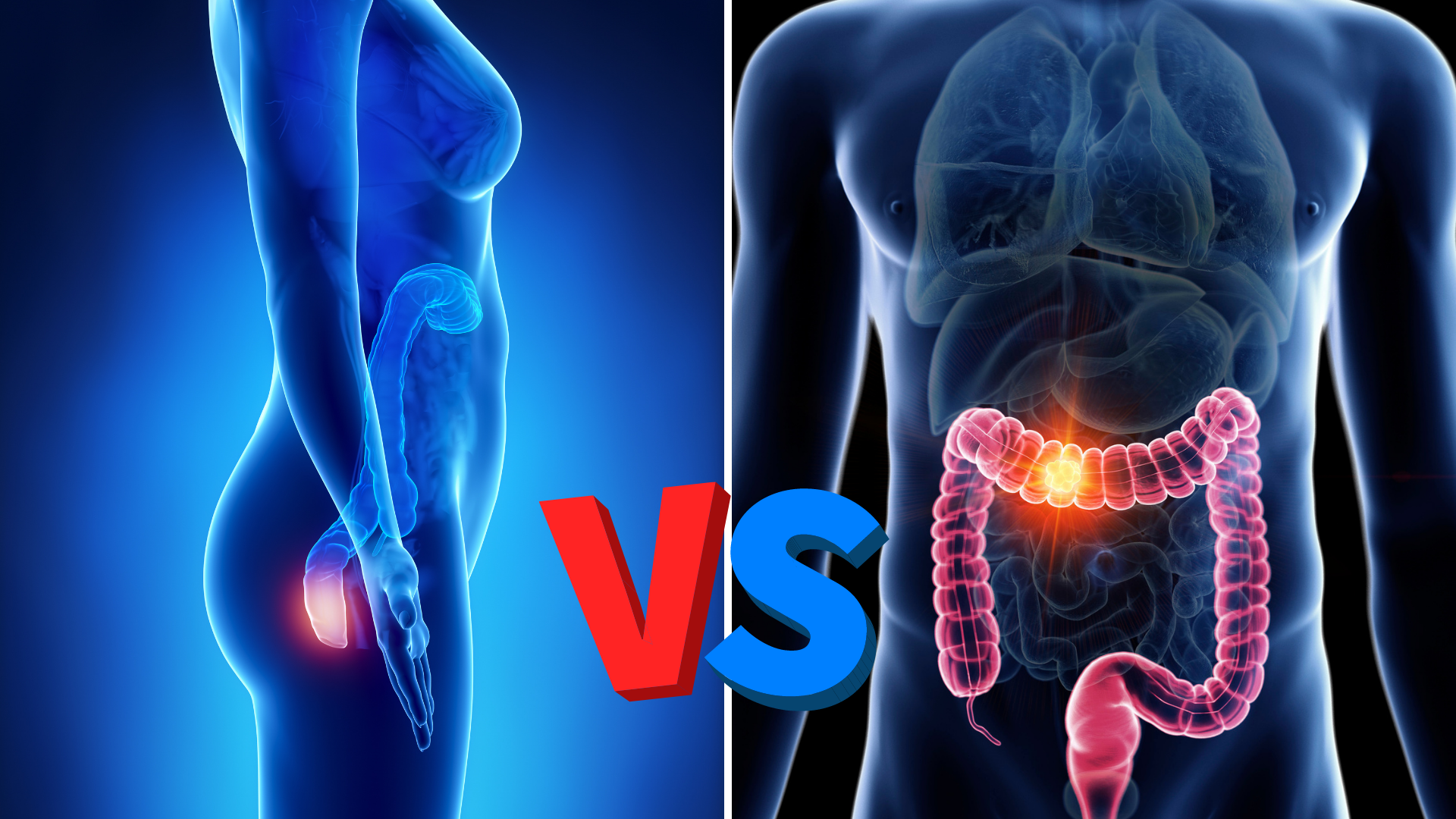To explain the difference between Hemorrhoid vs colon cancer, we need to understand the true meaning of both terms. The term “hemorrhoids” identifies a group of vascular structures belonging to the anal canal. When, for various reasons, they are swollen and inflamed, they become pathological and cause a syndrome known as hemorrhoidal disease.
In common parlance, the term hemorrhoids refers precisely to the hemorrhoidal disease. While the exact cause is unknown, a number of factors that increase intra-abdominal pressure, particularly constipation, are believed to play a role in their development.
The initial treatment for mild to moderate disease is to increase fiber and fluid intake to maintain hydration. NSAIDs (non-steroidal anti-inflammatory drugs) can temporarily be used for pain relief. In the most serious cases, surgery is done.
A tumor in the same area in which hemorrhoids commonly occur is anus tumor, a disease characterized by the uncontrolled proliferation of some cells of the terminal tract of the intestine. Risk factors that can affect the risk of developing the disease include infection by high-risk oncogenic HPV strains (human papilloma virus), previous anorectal or genital pathologies (such as hemorrhoids themselves, fistulas, warts , fissures and other neoplasms), smoking habit and old age.
Depending on the type of anal tissue affected and the tract of the canal from which it originates, anus tumor can have different characteristics. The most common forms include squamous cell carcinoma, adenocarcinoma, basal cell carcinoma and melanoma.

Hemorrhoid vs colon cancer, common symptoms and signs include:
- Alterations of the tree
- Anal burning
- Diarrhea
- Pain in the coccyx
- Anal pain
- Gastrointestinal bleeding
- I made tape-like
- Swelling in the anal area
- Enlarged lymph nodes
- Stomach ache
- Mucorrhea
- Rectal prolapse
- Anal itching
- Blood from the anus
- Blood in the stool
- Constipation
- Rectal tenesmus
- Skin ulcers
Symptoms of the disease hardly appear in the initial stages. Often, the first manifestations, pain and rectal bleeding, are attributed by patients to common anorectal pathologies, such as hemorrhoids or anal fissures. The loss of bright red blood may be accompanied by itching, a sensation of a foreign body or weight, mucous-serous or serum-blood loss from the anus, tenesmus and swelling of the lymph nodes of the inguinal region. Anorectal lesions (eg ulcers, fistulas and abscesses), diarrhea alternating with constipation and fecal incontinence may appear as the disease progresses.
The diagnosis of anus tumor is made by the doctor through inspection and exploration of the anus, to identify the presence of any nodules and evaluate their size and location. In support, instrumental investigations are performed (rectoscopy with biopsy of the lesion, colonoscopy, CT scan or MRI) to study the disease and allow targeted treatment.
Anus cancer can be treated with surgical removal or with a combination of radio- and chemo-therapy. The choice of treatment and its success depend on the location and stage of the tumor (whether it is confined to the anus or if it has spread to other organs), as well as the patient’s general health conditions.







